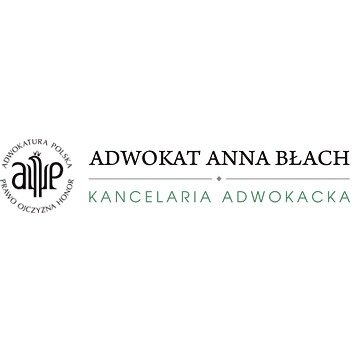Best Debt & Collection Lawyers in Warsaw
Share your needs with us, get contacted by law firms.
Free. Takes 2 min.
List of the best lawyers in Warsaw, Poland
About Debt & Collection Law in Warsaw, Poland
Debt & Collection Law in Warsaw, Poland regulates the legal processes and procedures related to debt recovery and collection. It aims to ensure fair treatment of both creditors and debtors, and to provide mechanisms for the resolution of disputes arising from debts.
Why You May Need a Lawyer
There are several common situations where seeking legal help from a lawyer specializing in Debt & Collection Law in Warsaw, Poland may be necessary:
- If you are being sued by a creditor for non-payment of debts
- If you are a creditor trying to recover a debt owed to you
- If you are facing harassment or unfair practices from debt collectors
- If you need assistance negotiating debt repayment plans or settlements
- If you require guidance on your rights and obligations as either a creditor or debtor
Local Laws Overview
In Warsaw, Poland, the following key aspects of local laws are particularly relevant to Debt & Collection:
- Debt collection is primarily governed by the Polish Civil Code
- A creditor can initiate a debt collection process by filing a lawsuit with the competent court
- Debtors are afforded certain protections, including the right to dispute the debt and the opportunity to negotiate repayment terms
- There are restrictions on debt collection practices to prevent harassment or unfair treatment of debtors
- The statute of limitations determines the time period within which a creditor can legally pursue debt collection
Frequently Asked Questions
Q1: Can a debt collector seize my property?
A1: A debt collector cannot seize your property without obtaining a court order first. They must follow legal procedures to enforce a debt.
Q2: How long can a debt collector pursue me for payment?
A2: The statute of limitations for debt collection in Warsaw, Poland is generally 6 years, starting from the date the debt becomes due and payable.
Q3: Can a creditor garnish my wages to recover a debt?
A3: Yes, under certain conditions and with a court order, a creditor can garnish a debtor's wages to recover a debt owed. The amount that can be garnished is subject to legal limitations.
Q4: What are my rights if I am being harassed by debt collectors?
A4: Debt collectors must adhere to strict regulations regarding communication and debt collection practices. If you are being harassed, you have the right to report such behavior to consumer protection authorities or seek legal assistance to enforce your rights.
Q5: Can I negotiate a payment plan with my creditors?
A5: Yes, it is possible to negotiate a payment plan or debt settlement with your creditors. Legal assistance can be valuable in ensuring a fair and manageable arrangement.
Additional Resources
If you need legal advice or further assistance regarding Debt & Collection Law in Warsaw, Poland, you may find the following resources helpful:
- Warsaw Bar Association - Provides a directory of lawyers specialized in Debt & Collection Law
- Consumer Rights Office - Offers guidance and support for consumer debt-related issues
- Polish Financial Ombudsman - Handles complaints and disputes related to financial matters, including debts
Next Steps
If you require legal assistance in Debt & Collection matters in Warsaw, Poland, follow these steps:
- Gather all relevant documentation related to your debt
- Research and identify reputable lawyers specializing in Debt & Collection Law
- Arrange a consultation with a selected lawyer to discuss your situation and seek advice
- Inquire about fees, potential outcomes, and timelines for resolution
- Based on the consultation, decide whether to proceed with legal representation
- If you proceed, provide your lawyer with all necessary information and cooperate fully throughout the legal process
Lawzana helps you find the best lawyers and law firms in Warsaw through a curated and pre-screened list of qualified legal professionals. Our platform offers rankings and detailed profiles of attorneys and law firms, allowing you to compare based on practice areas, including Debt & Collection, experience, and client feedback.
Each profile includes a description of the firm's areas of practice, client reviews, team members and partners, year of establishment, spoken languages, office locations, contact information, social media presence, and any published articles or resources. Most firms on our platform speak English and are experienced in both local and international legal matters.
Get a quote from top-rated law firms in Warsaw, Poland — quickly, securely, and without unnecessary hassle.
Disclaimer:
The information provided on this page is for general informational purposes only and does not constitute legal advice. While we strive to ensure the accuracy and relevance of the content, legal information may change over time, and interpretations of the law can vary. You should always consult with a qualified legal professional for advice specific to your situation.
We disclaim all liability for actions taken or not taken based on the content of this page. If you believe any information is incorrect or outdated, please contact us, and we will review and update it where appropriate.













